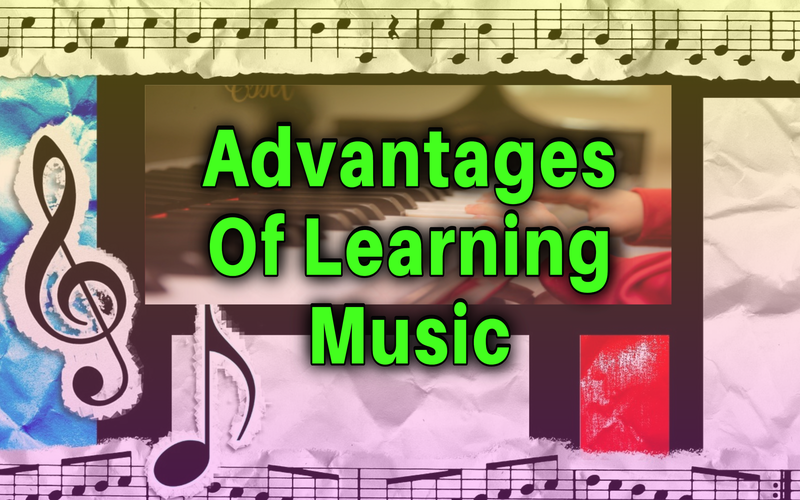Advantages of Learning Music

There are a lot of advantages of learning and mastering music. In addition to having a beautiful sound that is soothing to our ears, below are just some of the additional advantages of learning music:-
Advantages of learning music
1. The first advantage of learning music is its ability to sharpen our intellect. Children who are exposed to early music lessons find that music can help in the development of our brain. Even prior to a child being born, exposing calming sound or music to babies can have a soothing and calming effect. Learning music involves activating the right hemisphere of the brain which is associated with language learning and reasoning. From reliable research, it is found that this brain development can also help the babies and can continue for many years after birth.
2. New research has even discovered that there is an undeniable association between learning music and spatial intelligence. Spatial intelligence refers to the ability to imagine and form mental pictures in our mind. Spatial intelligence can be used to solve complex mathematical problems which involves the ability to visualize 3-dimensional objects. From the research it is found that learning music will not only help in developing the right brain, it can also help in the development of the left brain to a certain extent as well.
3. Learning music can also boost the self-esteem and self-confidence of a child. There are many studies who showed that students who learned music when they are young are more successful academically and can achieve a higher test scores for TOEFL, IELTS or the SAT. Music students normally also perform better academically and can achieve higher grades in their schools. The ability to perform well on stage also greatly enhances the self esteem of students of music. Stage performance also develops independence as well as bravery to overcome anxiety. A tiny bit of anxiety is not a bad thing and the learning the ability to deal with this early on in life will greatly help boost the self confidence of children. Self confidence is in fact on the key selection criteria that employers are looking for during the hiring process.
4. Students who learn music also usually develop greater self discipline. Music like any other crafts requires students to constantly practice in order to perform well. Music students learn craftsmanship as they constantly put in the hard work to develop presentable work of art. These standards pushes the students to continually demand a new level of excellence and require students to stretch beyond their comfort zone to achieve their own true potential. Through music, students learn to appreciate reaching a certain level of excellence or grade through persistence and hard work.
5. Music study also enhances the ability to work in team events. In an orchestra, there are many people playing different types of instruments. In order for the performance to really sound good, everyone within the orchestra must work together in synchronicity to achieve the goal of having the best display of performance. In doing so, everyone must independently commit to attending rehearsals and practicing their parts within the orchestra. It is through these activities that strong bonds are formed and the value of teamwork is appreciated and commended.
6. Music is also an avenue for students to express themselves. Different people have different styles of doing things including playing music. Music provides an avenue for students to discover their core and inner self. Music lets students get in touch with what they truly are and what they feel.
7. Playing music can help the mind to relax and release tension. When playing music, the mind gets occupied with the beautiful sound that is created. This in turn can melt away any worries that has been bogging the mind. Learning music also helps to occupy the time of students and divert their attention away from unhealthy activities like drug abuse and obsession with computer games. Learning and playing music is indeed a healthy activity that should be promoted to more children.
8. Last but certainly not least, music can provide a good career path for students who are willing to take it to the next level. Teaching music is a very rewarding career and with the current downturn in the economy, teaching music can be a very good alternative to the traditional jobs. It also allows you to work at home as well as set your own working time.
With so many advantages and little to no disadvantages of learning music, it is strongly encouraged that parents send their children to music appreciation classes or music lessons early on in life as that is when their creativity is at its peak potential to be developed. A good age to start learning music is from the age of 4 to 5 years old.
There are many advantages of learning music. If you are planning to send your child to learn music, please do check us out. Please feel free to contact us to enquire about your first trial music lesson.

